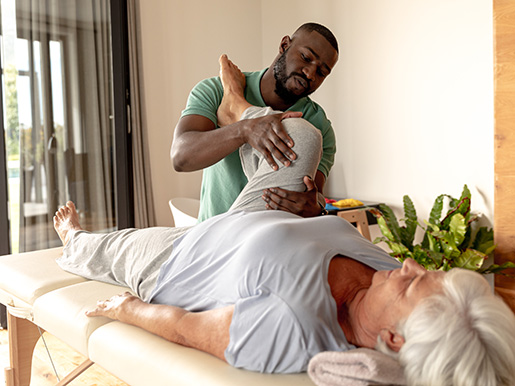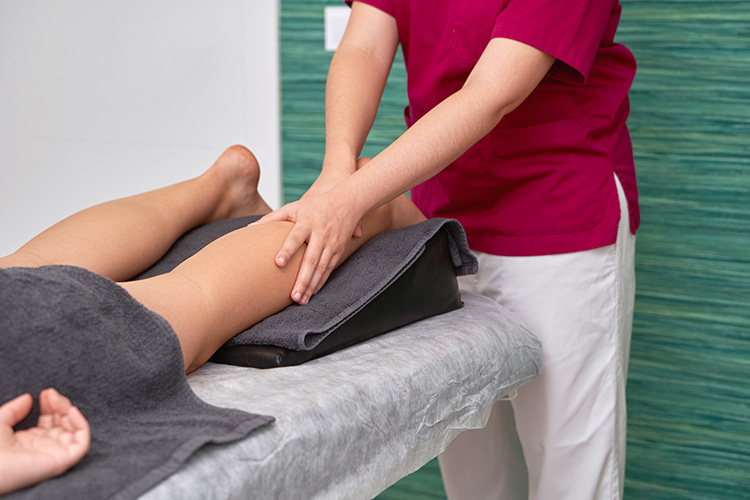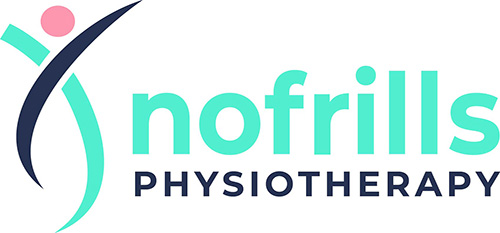Blog
Articles on Physiotherapy Treatments & Musculoskeletal Conditions
This Physiotherapy Articles portal is dedicated to offering clear information on the latest physiotherapy conditions and treatments. Recovery is a shared responsibility—not just for your physiotherapist, instructors, or trainers, but also for you and your caregivers. It requires everyone’s active participation and understanding.
At Nofrills Physiotherapy, we focus on overcoming barriers and enhancing human potential, enriching our clients’ lives and inspiring them to reach their best.
Blog
Articles on Physiotherapy Treatments & Musculoskeletal Conditions
Effects of Physical Activity on Motor Skills and Cognitive Development in Early Childhood: A Systematic Review


Workplace physiotherapy for musculoskeletal pain-relief in office workers: A pilot study

Empowering Women’s Musculoskeletal Health: Approaches to Addressing Common Aches and Issues.
In the constantly evolving healthcare landscape, women’s health is a vital focus, and physiotherapy significantly contributes to improving women’s well-being.
A systematic review of work-related musculoskeletal disorders and risk factors among computer users
Technological advancements have led to widespread musculoskeletal disorders (MSDs) among computer users, costing the US industry $45 to $54 billion annually.

Physiotherapy for Healthy Aging
The world’s population is aging. The number of adults over age 65 is expected to double in the next 20 years. In 2012, almost one in seven Canadians were aged 65 years or older; by 2030, nearly one in four Canadians will be a senior.

Effect of sports massage on performance and recovery
Sports massage is ubiquitous in elite sport and increasingly common at age-group and amateur level, generating a multi-million pound industry of professional therapists.

Exercise Prescription in Physiotherapy: Best Practices
An overview of how physiotherapists design exercise prescriptions tailored to individual patient needs, promoting effective recovery and long-term health.

The Role of Physical Therapy in the Treatment of Back Pain
Living with back pain can be incredibly challenging. For those seeking effective relief, consulting a therapist can be a beneficial step towards a healthier life.

Physical Therapy Guide to Headaches
Pain of any type that occurs in any part of the head is called a headache. There are many different types of headaches, with just as many causes.

Seven surprising facts about osteoarthritis
For many people ages 50 and over, pain and swelling in the hip, knee, fingers or feet may be signs of osteoarthritis.

Avoiding Chronic Back Pain From Desk-Bound Work
It doesn’t matter whether we are working at the office or working from home, we’re still sitting most of the time that we’re working.
F.A.Q.
General Physio FAQ
What is Physiotherapy in Singapore?
Physiotherapy is a science-based profession focused on the prevention, assessment, and treatment of movement disorders caused by physical disabilities, trauma, or illness.
It helps patients alleviate pain, enhance muscle strength, increase joint range and mobility, improve exercise tolerance, and boost respiratory function. Taking a whole-person approach, physiotherapy considers the patient’s overall lifestyle and well-being.
Grounded in medical science, physiotherapy is not tied to any specific “technique” often associated with alternative medicine. Instead, it utilizes any medically proven methods that demonstrate effective, verifiable results from research and testing.
What are the fields of practice for Physiotherapists?
Physiotherapy encompasses a broad range of practices. In Singapore, physiotherapists typically specialize in one or two of the following areas:
- Burns and Plastics Surgery Rehabilitation
- Cardio-respiratory Physiotherapy
- Chronic Pain Management
- Child Developmental Assessment/Therapy
- Gerontology
- Elderly Care
- Neurological Rehabilitation
- Head Injury, Stroke, and Neurological Diseases
- Orthopaedics
- Paediatrics and Child Developmental Assessment/Therapy
- Sports Physiotherapy
- Women’s Health
- Palliative Care
Which areas does Nofrills Physiotherapy specialize in?
At Nofrills Physiotherapy, we concentrate on a specific range of musculoskeletal practice areas, including:
- Chronic Pain Management
- Neurological Rehabilitation
- Stroke and Neurological Diseases
- Orthopaedics
- Paediatrics (Orthopaedics)
- Sports Physiotherapy
- Women’s Health
Are Singapore Physiotherapists licensed or registered with the Ministry of Health?
Yes, physiotherapists in Singapore are required to be registered with the Ministry of Health. They must hold a recognized qualification and fulfill specific licensing requirements to practice legally in the country. This ensures that they meet professional standards and provide safe and effective care.
What are the required qualifications?
Physiotherapy is primarily a degree-based profession. In Australia and the UK, it typically involves an extensive four-year full-time bachelor’s degree program, similar to an engineering degree.
In the United States, practicing as a physical therapist now requires a Doctor of Physical Therapy (DPT) degree.
There is a growing trend towards higher academic requirements for new practitioners. For instance, Australia is gradually shifting to a Master’s degree requirement following a bachelor’s degree in physiotherapy, reflecting the increasing depth of knowledge needed to ensure competence in the field.
How does Physiotherapy differ from other Complementary Alternative Medicine (CAM)?
Complementary Alternative Medicine refers to practices that claim to have healing effects but are not grounded in evidence obtained through the scientific method. Examples include homeopathy, naturopathy, and chiropractic.
In contrast, physiotherapy is rooted in Evidence-Based Medicine (EBM)—also known as evidence-based health care (EBHC) or evidence-based practice (EBP). EBM involves the conscientious, explicit, and judicious use of the best current evidence to make informed decisions about individual patient care.
How is physiotherapy different from massage or gym exercises, especially when neck "cracking" is involved?
Confusion often arises because physiotherapy is distinct from practices like massage or tui-na, much like the difference between traditional herbal medicine and modern pharmacology. While traditional methods can sometimes be effective, their results can be inconsistent, and recovery may occur even without treatment.
Modern pharmacology rigorously studies these treatments to determine what works, why, and under what conditions, including potential side effects. Similarly, physiotherapy employs evidence-based methods to identify effective interventions. Unlike general massage, which may offer temporary relief, physiotherapy specifically targets muscles using precise techniques grounded in scientific evidence.
While a general approach can be sufficient at times, more targeted methods are often necessary for optimal results.
Will I instantly recover after one session?
In most cases, a single physiotherapy session is insufficient; the number of sessions needed depends on the type and duration of the injury.
Analogy: Just as you wouldn’t expect to cure an infection with a single antibiotic pill, treating musculoskeletal issues usually requires multiple physiotherapy sessions.
Acute Phase: The initial focus is on reducing inflammation and protecting the affected area.
Chronic Conditions: Addressing changes in posture, movement, and muscle/joint function takes time. Chronic issues often involve muscle tightness, weakness, and joint problems, necessitating ongoing strengthening, stretching, and possibly joint mobilization.
Treatment Plan: To effectively address joint stiffness or other chronic issues, multiple sessions may be required. After an initial assessment, a physiotherapist can provide an estimate of the number of sessions needed for recovery.
Office
279 Tanjong Katong Road
Singapore 437062
Monday to Friday : 9am – 8pm
Saturday : 10am – 7pm
Sunday : 10am – 6pm
Services
Knee Pain
Shoulder Pain
Neck Pain
Elbow and Wrist Pain
Ankle and Foot Pain
Stretch Therapy
Sports Therapy
Women's Health
Contact
(+65) 9007 1085
hello@nofrillsphysiotherapy.com
Address: 279 Tanjong Katong Road
Singapore 437062
Other Physiotherapy Services
Shockwave Therapy
Dry Needling
Sports Massage
Functional Fitness
Workplace Health

